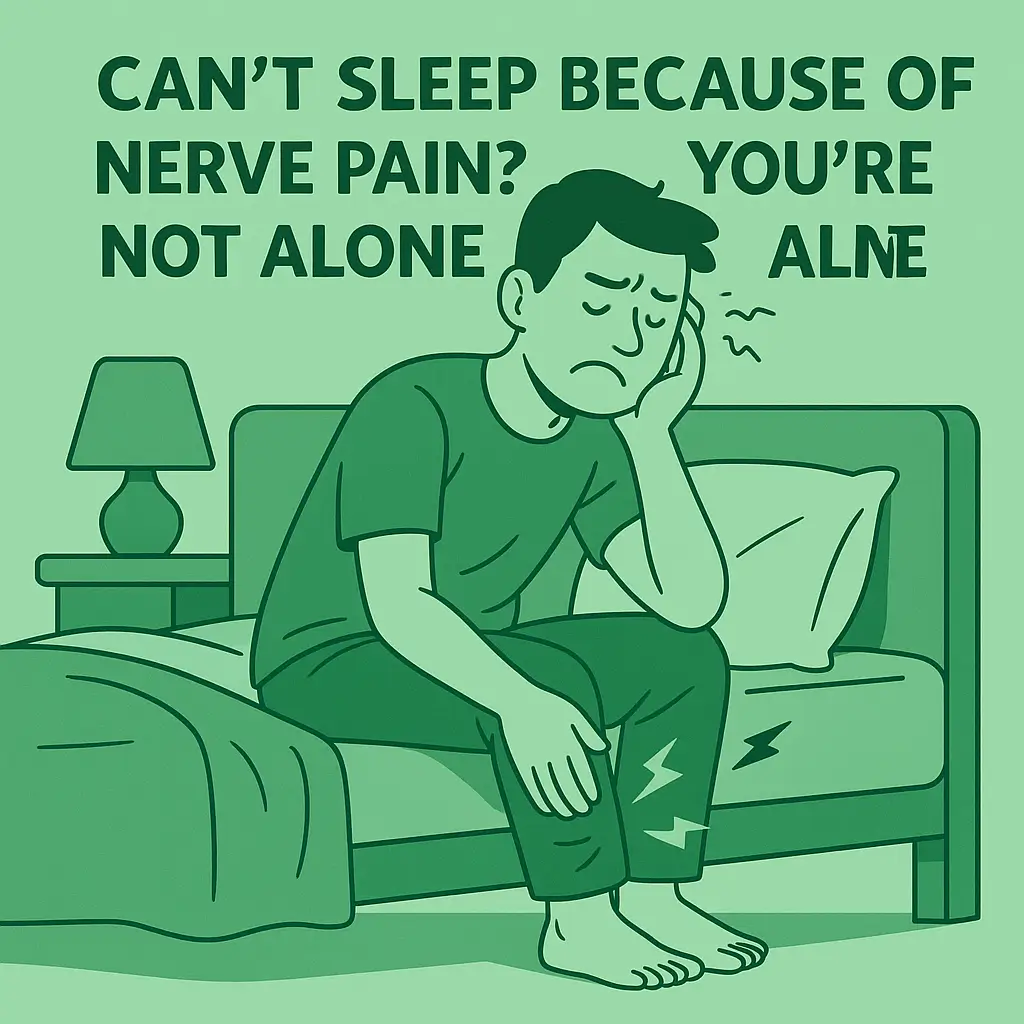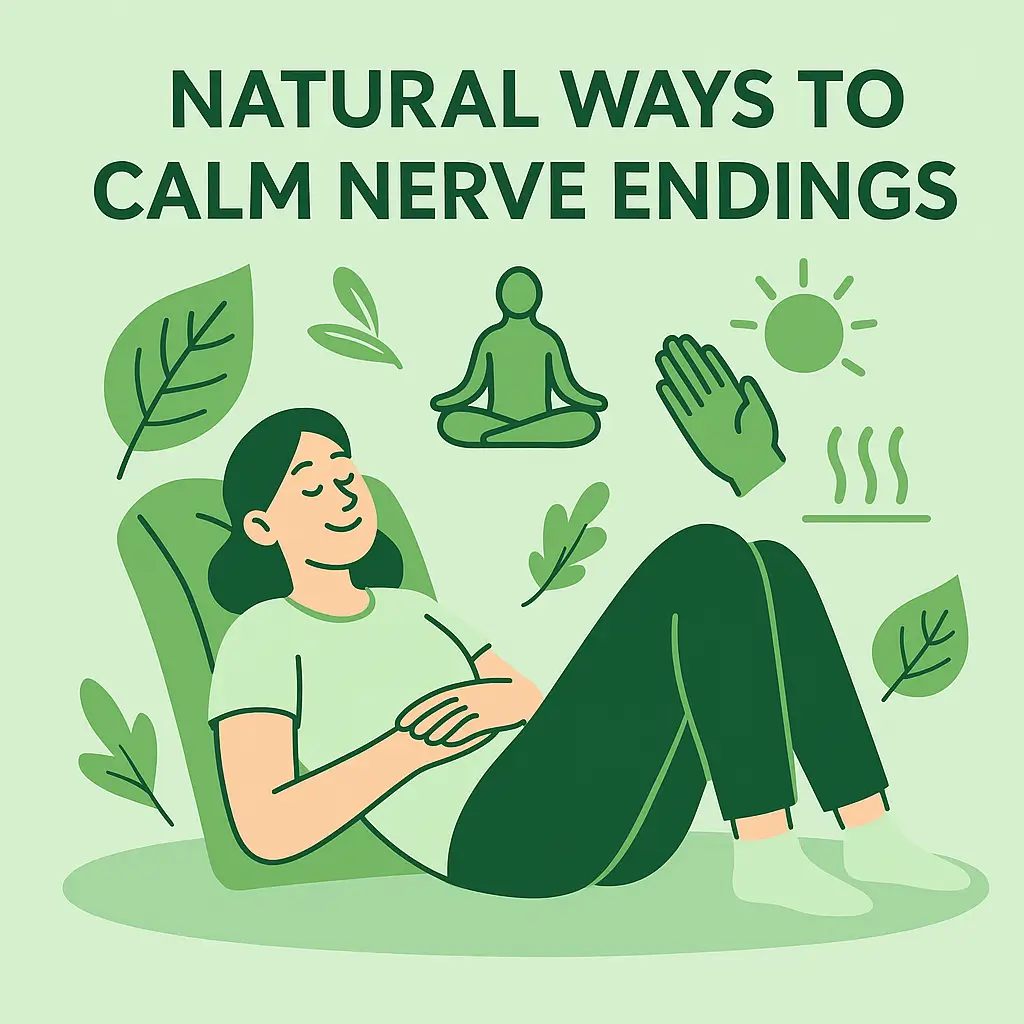How Nerve Pain and Sleep Are Connected – What You Should Know
Dealing with nerve pain and sleep troubles? You’re not alone. For many people, the two are deeply connected—and the lack of sleep only makes the pain worse. If you’ve been struggling to get through the night because of burning, tingling, or stabbing sensations, it’s time to understand how nerve pain and sleep impact each other, and what you can do about it.
In this post, we’ll break down why nerve pain affects your sleep, how poor sleep makes pain worse, and what simple changes can help you reclaim restful nights.
Why Does Nerve Pain Get Worse at Night?
Nerve pain often intensifies during the evening, and this isn’t your imagination. When the body is at rest, and there are fewer distractions, you tend to notice the pain more intensely. There are several reasons for this:
- Reduced circulation when lying down can make nerves more sensitive.
- Lack of distractions at night heightens awareness of discomfort.
- Cooler nighttime temperatures may increase nerve sensitivity in some people.
- Stress and anxiety build up over the day, making pain feel more severe.
The result? Difficulty falling asleep, waking up frequently, or staying in a light, unrestful sleep cycle.
The Vicious Cycle: Nerve Pain and Sleep Deprivation
The connection between nerve pain and sleep is a two-way street. Just as nerve pain can disturb your sleep, not getting enough rest can actually make the pain worse.
Lack of sleep increases inflammation, reduces your body’s ability to heal and regenerate, and disrupts hormone levels that regulate pain and stress. Over time, this creates a cycle:
- Pain keeps you awake.
- Poor sleep worsens pain.
- Increased pain leads to more sleep problems.
Breaking this cycle is key to improving both your sleep and your quality of life.
Signs Your Sleep Is Being Affected by Nerve Pain
How do you know if nerve pain is the real reason behind your sleep struggles? Here are some common signs:
- Waking up with tingling or numbness in hands or feet.
- Feeling sudden jabs or shocks when trying to sleep.
- Struggling to find a comfortable position due to discomfort.
- Needing medication or topical remedies just to fall asleep.
If you’ve experienced one or more of these symptoms, it’s time to look deeper into the connection between nerve pain and sleep.
Tips for Sleeping Better with Nerve Pain
You don’t have to rely solely on medications or give up hope. There are natural strategies you can try to improve your sleep quality while managing nerve discomfort:
1. Create a Consistent Sleep Routine
Go to bed and wake up at the same time each day—even on weekends. This helps regulate your internal clock, making it easier to fall asleep despite pain.
2. Keep Your Bedroom Cool and Comfortable
A cooler room temperature and a supportive mattress can reduce nerve irritation. Use a body pillow or wedge to elevate limbs and reduce pressure on sensitive areas.
3. Try Relaxation Techniques
Mindfulness, meditation, and deep breathing can help calm the nervous system. Just 10 minutes before bed can make a difference.
4. Limit Caffeine and Blue Light
Avoid coffee, heavy meals, or screen time for at least an hour before bed. These factors can interfere with your ability to relax.
5. Use Topical or Natural Remedies
Some plant-based products may provide localized relief that allows you to fall asleep more easily. We explore one promising option in our next post.
Looking for Natural Ways to Soothe the Pain?
If nerve pain is affecting your sleep and daily life, there are gentle and natural strategies that can help you find relief—without relying on pills.
👉 Read: 5 Natural Ways to Calm Nerve Endings Without Pills
This guide walks you through simple lifestyle techniques and supportive methods that may help calm overactive nerves and improve your sleep quality—naturally and effectively.
Final Thoughts
If nerve pain and sleep have been taking a toll on your health, energy, and mood, you’re not alone. Understanding this connection is the first step to regaining control.
While medications can offer short-term relief, natural lifestyle adjustments often provide lasting results without side effects. The key is to stay consistent and give your body the support it needs.
Your sleep matters—and so does your comfort. Don’t ignore the signs. Start implementing changes today, and explore safe, natural solutions that fit your lifestyle.













Post Comment